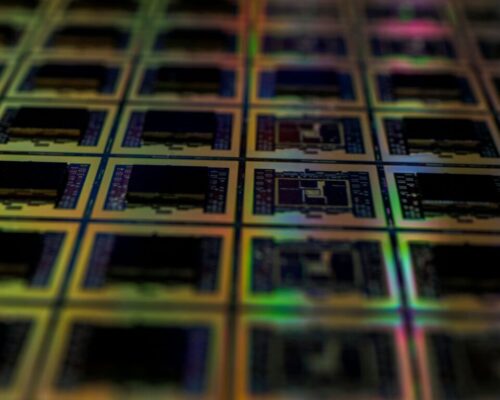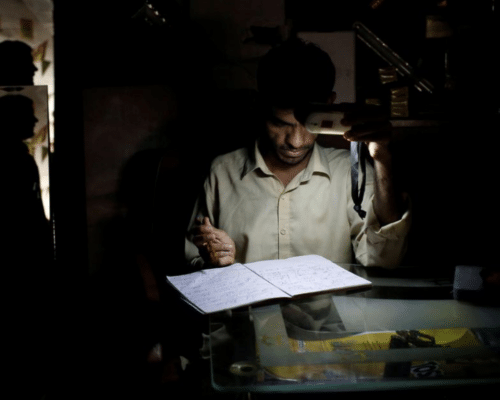In a Warming World, the Philippines is Giving Far Too Warm a Welcome for Gas [Op-Ed]
Photo: Basilio Sepe / CEED
09 April 2024 – by Gerry Arances, Aryanne De Ocampo and Krishna Ariola Comments (0)
By now, any doubt in any Filipino’s mind that we are facing unprecedented global warming should have been thrown out the window with the current el niño. From billions in agricultural damage and health impacts to food, water, and energy insecurity, this extremely hot and dry season is a nightmare coming to life. But unless radical climate action is taken in every part of the globe, the heat we are suffering will seem more comfortable than it will be in years to come.
President Marcos entered office with a bold pronouncement to make renewable energy (RE) his top climate agenda. This promise would have been a welcome change in the fossil-based energy directions of past administrations: the coal boom in the 2010s led to heightened energy insecurity, pollution and high electricity prices. But by claiming that natural gas will play a ‘key role’ in the ‘interim’, this RE pledge was flawed from the get-go.
As a climate-vulnerable yet renewables-rich country, it is necessary and feasible for the Philippines to switch to 100% RE in the next two decades or less. Given the falling costs of renewables and the capability of RE to be designed to address the needs of communities in any terrain, we would see improved energy affordability and access. But just when we should race to beat the climate clock by decarbonising our power sector, the government is running in the opposite direction: the supposed star of its climate agenda is gravely outshined by an aggressive push for fossil gas.
Labelled as priority legislation by the President, congress is deliberating bills to expand the downstream and midstream gas industry. The Department of Energy also recently issued orders unlawfully promoting preferential treatment for gas plants in power generation. The excuse is that gas will be a ‘bridge fuel’ to using more renewables. But this is nothing but a warm welcome to terrible deception: an energy transition with fossil gas as bridge fuel is no transition at all.
Like coal and oil, gas is a fossil fuel incompatible with the goal to keep global temperature rise below 1.5°C by the end of the century, a goal meant to avert even more catastrophic climate changes. For the Philippines, this means phasing out coal by 2035 and gas from 2035 to 2040, meaning no expansion can be allowed. Contrary to claims that it is a cleaner alternative to coal due to leaking less carbon dioxide, what fossil gas produces, methane, is eighty times more potent in causing global warming over a 20-year period. Gas is also destructive to host communities and environments, like the critically biodiverse Verde Island Passage, where much of our planned gas expansion is located.
Fossil gas will also keep the status quo of unreliable yet expensive electricity. With the Malampaya field depleting, all new and existing gas plants will rely on imported liquefied natural gas (LNG) – further injuring energy self-sufficiency and security. The first two LNG cargoes alone are estimated to have cost Php 5.1 billion – an unduly expensive price. The global tug-of-war in LNG and its susceptibility to geopolitical developments, such as the recent pause in new exports by the United States, means prices are prone to violent fluctuations, which consumers will feel from passed-on fuel costs.
With this fossil-friendly landscape, planned gas capacity rose from around 17 GW pre-Marcos administration to over 42 GW today. These and accompanying import terminals will lock us into decades more costly, dirty, and climate-destructive electricity if built.
Recently, news emerged that the Philippine government finally joined a case at the International Court of Justice to hold polluters accountable. At the COP28 climate conference, the Philippines was also a signatory to the historical call for all parties to “transition away from fossil fuels.” These are welcome developments, yet any gain for the Philippines is undermined by our government opening the gates wide for more emissions and pollution with gas.
In a few days, President Marcos will meet with Japanese Prime Minister Kishida and US President Biden in a trilateral that would table “advanc[ing] clean energy supply chains and climate cooperation.” Despite the grave socio-economic and climate impacts, the US and Japan are notorious champions of LNG. Japan is the biggest financier of LNG, and Japanese financiers and corporations are pushing gas onto developing economies like ours. JERA has been playing with fire with Aboitiz to accelerate LNG and other unproven technologies. Meanwhile, government-owned Japan Bank for International Cooperation (JBIC) signed partnerships with fossil giants San Miguel, Aboitiz, and Meralco, even while already undergoing an investigation for having funded the Philippines’ first LNG terminal amid complaints of environmental violations and community impacts. On top of championing gas, these three companies are culprits to the threat of coal sticking around for decades more – both with operating coal plants and several projects in the over 4 GW remaining planned capacity that the government’s 2020 coal moratorium insists on ignoring.
The trilateral is a test for the Marcos administration’s commitment, or lack of, to the energy transition. Will the outcome be genuine advancements in renewables or another parade of gas as bridge fuel deception? The latter will be an abandonment of all climate imperatives and a disservice to all Filipinos.
Gerry Arances is founder and executive director of the Center for Energy, Ecology, and Development (CEED) in the Philippines.
Ariola is the lead convenor of Youth for Climate Hope.
Center for Energy, Ecology, and Development (CEED) is a think-do organisation that conducts research and advocacy and partners with communities and basic sectors for energy democracy, ecological integrity and a people-centred development. Established in 2015, CEED is composed of individuals with a heart for the environment and for the people.
Disclaimer: The views and opinions expressed in this article are those of the author and do not necessarily reflect the official policy or position of Energy Tracker Asia.






